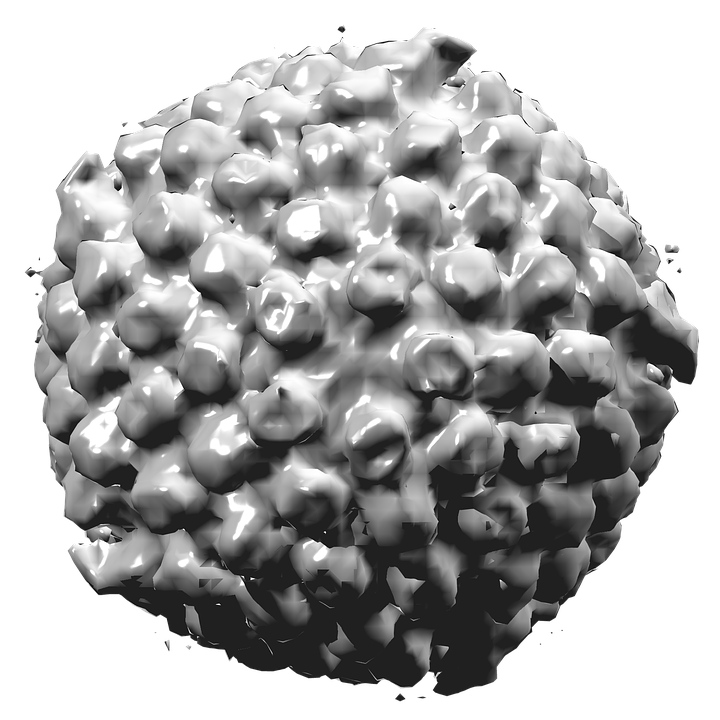A lot to do about herpes?
Herpes belongs to a group of viruses we know only too well. It is a so-called DNA virus, which means that it is not actually alive but a "chunk" of DNA that can penetrate into the nucleus of certain cells and remain present for life. Several variants of it are known. In humans, for example, we know chickenpox, shingles and the infamous cold sore. Herpes is often species-specific, and therefore not transferable between different animal species. The dog has its own variant.
This is the Canine Herpes Virus (CHV). There are lots of stories about this virus: 50% of the kennels it supposedly infected, animals would get infected through natural mating and all litters would have to be placed at high temperatures right after birth.
Dit artikel is een premium-artikel,beschikbaar voor abonnee's van ons blad en website-abonnee's. Het vervolg van dit artikel kunnen abonnees lezen.
Wilt u toegang, kijk dan hier voor de mogelijkheden
And recently many breeders were close to international panic because the vaccine against Canine Herpes was temporarily not available. In their minds, breeders saw their litters die a grievous death. Things turned out tob e not that serious: the number of cases of CHV did not get any higher or lower than in times the vaccine was available. The panic was apparently unnecessary. But the panic did raise questions on the truth about this disease.
If an owner of a male asks for the serostatus of the bitch to be tested, the breeder is of course just as entitled to ask the same of the male.
Professor doctor Hans Nauwynck, virologist at Ghent University, can be seen as an absolute specialist. He explains: "At the very first contact this virus causes a very active infection. Then the infected animal itself is also quite contagious (2-3 weeks). Clear symptoms are only seen in young puppies during their first weeks of life, which can even lead to death. CHV is known to retreat during this phase into the trigeminal ganglion, which is a nerve in the middle of the head. Then the virus will be inactive. It remains in latent state until a reactivation takes place, after that it spreads again to the upper respiratory tract. There it will be multiplied and excreted for several days."
But that does not appear to be a reason for immediate panic: such a reactivation is not nearly as agrgresive the second time and therefore also not nearly as contagious. In humans, an outbreak is often perfectly recognizable: for example, a cold sore develops. But in dogs, how bad is it if an animal actually is a carrier of the herpes virus?

Professor Nauwynck is rather annoyed by all the stories: "There is so many myths currently circulating. Every year I diagnose a few litters of puppies during their first weeks of life. The cause of herpes in puppies is their high susceptibility for pathogenic organisms during the first weeks of life and the absence of antibodies in the colostrum of the bitch so that the puppies are not protected after taking up the colostrum (antibodies in the colostrum are transported via the intestine to the pup’s blood). So a seronegative status of the bitch can be a dangerous situation. This is why it is best to vaccinate seronegative bitches. When a bitch is seropositive, in other words: has antibodies, the pups are fully protected via the antibodies that enter the colostrum. The relationship with fertility disorders is strongly exaggerated. In the past I investigated to what extent bitches are infected by a seropositive male through mating. During 30 mating this was not found, so negligible. Fertility problems are conveniently assigned to Canine Herpes, but often there are non-infectious causes at the base (eg wrong mating time / insemination, poor sperm of the sire). Fertility experts should be consulted a lot more in these issues in order to get to a targeted solution. "
But okay, let's assume that a breeder has an immune, seropositive bitch. Or an immune, seropositive male. These animals usually do not secrete a virus. The virus can possibly be transferred but only if there is a reactivation, which is rare. If both animals are immune, this usually has no disastrous consequences. If an owner of a male asks for the serostatus of the bitch to be tested, the breeder is of course just as entitled to ask the same of the male. If both are carriers, there is nothing to worry about. In fact, the bitch protects her puppy: she is a carrier and therefore has antibodies. If one of them is not seropositive for the virus, then still nothing the matter. Nauwynck: "If contamination even occurs during mating, this is rarely happening via the genitals. Throughout my career I have researched this numerous times and never found contamination in the gentials. No, the most contagious parts are the nose and mouth. If there is a contamination then it is almost always because of licking each other's mouth. Not so much because of the copulation. "
Nauwynck: "An environment is usually not contagious. Even when a breeder has a carrier. Only in the case of a first infection and to a lesser extent in reactivation animals are infectious and in the environment temporary infectious virus can be present. Contamination mainly occurs between animals through contact via saliva and nasal mucus. Not through the soil or contaminated materials. The virus immediately dies in the open air. So when people want to disinfect, let them feel free to do so but to avoid herpes this is rather useless. Furthermore, the virus is easy to destroy. Simple soaps will kill this virus. "
Testing: Professor Nauwynck does not see the problem here: "An animal that is a carrier tests positive. You do not have to vaccinate. An animal that tests negative can best be vaccinated."
Vaccination is therefore extremely useful for animals that are seronegative. Anyone who wants to know the serostatus for sure will have to test. Of course, a reaction tot he vaccine is always possible, the professor emphasizes. It is a vaccination and therefore a hostile matter tot he body. But the chances of the bitch aborting or remaining barren because of this vaccination is negligible.
Suppose that a bitch is a carrier and seropositive, how dangerous would that be for her newborn pups? First of all, the professor states that such a bitch should not be removed from breeding. In fact, she protects her puppies through the antibodies in the colostrum. Unless of course the virus becomes active during pregnancy, but even then the risks are not that large, because as mentioned before, the reactivation is always much less severe than a first infection and the limited replication of the bitch is mainly at the height of the upper respiratory system. Should the virus still be transmitted, pups that get antibodies from that bitch are protected against an infection,.
A bitch who is a carrier, either by vaccination or by infection, protects her pups through the colostrum; she certainly should not be removed from the breeding.
But how about a seronegative bitch that gets infected at the end of the pregnancy or shortly after the partus. Then what? Indeed, in that case there is a great risk that the puppies are infected and become ill.
And if you notice the puppies to be infected, then what? Professor Nauwynck sees no bright perspective here: "At the point you notice the pups being sick through the moment of endless squeaking and crying, it is already too late. The wheezing is a signal that the lesions in the blood vessels are already present. At that point there is no return, it is too late. For a litter in the first week the thing to pay attention to is the temperature. It needs to be the correct ambient temperature. You have to think 26-28 degrees Celsius here. A low ambient temperature activates the virus multiplication in the pups. "
It is frustrating that there is no medication against this problem. The question is raised whether the medication that is available for human variants of this virus could not be useful for dogs. But that is completely out of the question, says professor Nauwynck: "Human medication is developed for people, and not for animals. It is certainly not without risk to apply it to dogs, and the efficacy can certainly not be guaranteed. Furthermore, the lesions do not heal through the use of antiviral drugs."
And now that we are talking medication, what about carriers of herpes that get medication for other things? Any risks there? "Corticosteroids are known to trigger latent infections. Carriers of herpes can thus get a reactivation of the virus if they are prescribed corticos, for example. "But that does not seem to be something to worry about for the animal itself: as said before the reactivation is not particularly intense.
It can be dangerous however if newborn pups from seronegative bitches are present in the area. Through contact with a treated animal that secretes virus, the virus can be transmitted and lead to infection and disease in the pups. A good separation of mother and pups from the rest of the group is therefore advisable.
The concerns about herpes and its consequences seem to be a lot less dramatic than many breeders fear. Of course it is important to ensure that everything is as optimal as possible when a litter is bred. An optimal follow-up on pregnant bitches is extremely important: antibodies in the blood are needed (due to previous infection or vaccination) to protect the puppies through the colostrum. Determining the serostatus and targeted vaccination is therefore important. If the vaccine would no longer be available that would be a shame, but it would certainly not lead to disastrous consequences for dog breeding. After all, dog breeding existed long before the vaccine was out there.





